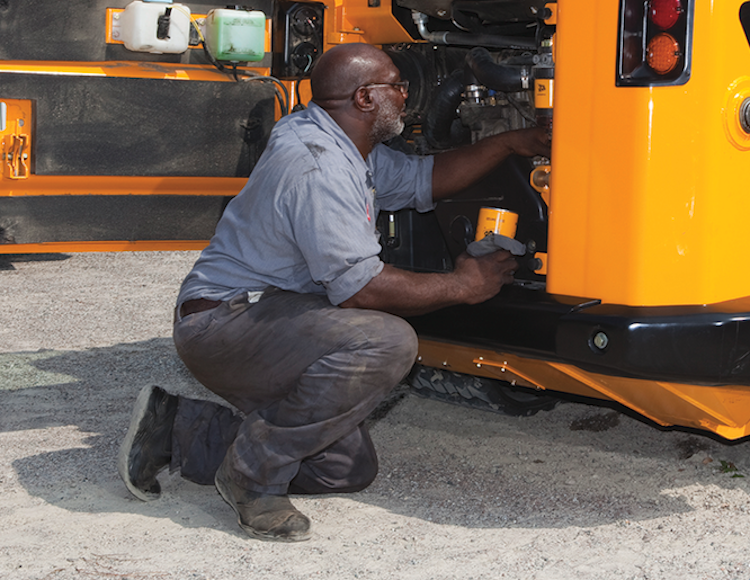
A dealer’s rental manager walks his visitor around the Rental Department, discussing aspects of his operations. Suddenly, they take an unexpected detour into the Service Department. “You want to see where my inventory is?” the rental guy exclaims, pointing to the service job board. “It’s here: a 30-minute job, an hour job, a 45-minute job.” The visitor asks, “How long have these machines been in there?” The rental manager replies, “Weeks.”

Edwards
The visitor was Owen Edwards, a career rental man who’s now a senior rental consultant with Script International. The point of his story: Dealer rental operations often struggle to quickly turn around returned rental inventory for the next customer, stymied by their reliance on the dealership’s service team, whose top priority tends to be customers’ owned units rather than the dealer’s rental units.
“The rental business is a more competitive business today,” says Edwards, “and the need for rapidly making equipment ready for the next rental is increasingly important.” If rental processes aren’t timed and well managed, he adds, you may end up having to buy more inventory to compensate for these kinds of operational inefficiencies.
When a dealer’s rental inventory size and rental revenue outgrow the Service Department’s ability to support a competitive rental operation, it might be time to explore an alternative solution that expedites unit turnaround between rentals.
That solution? Hiring one technician or, if justified by the fleet’s time and financial utilization, a service team dedicated solely to rental.
It’s not a new idea, nor one that’s been widely embraced. And it’s by no means a one-size-fits-all answer for every dealership. A smaller operation with $1 million or less in rental inventory would have a tough time affording a dedicated rental technician, Edwards notes.
“In terms of staffing, it’s a critical mass game,” he says. “As the dealer adopts more of a true rentals strategy and their fleet become larger, the maintenance and turnaround become higher on the radar screen. But the larger that fleet becomes, and the more it’s utilized properly, you then have the bandwidth to operate more autonomously.”
Where to start
A practical place to begin might be adding a junior-level or student technician who’s responsible for turning rental equipment around once it’s returned.
Maintaining fleet age at two years or less is the secret to making that work.
“If you keep the average age of the inventory low, then the need for heavy maintenance is less likely,” says Edwards. “So it doesn’t require the most skilled technician. It all kind of works hand in glove.”
Less experienced technicians benefit from the foundation of working on rental equipment, he adds. “In my experience, it is a great learning ground because a technician will run into a lot of scenarios while preparing equipment for rental that they may not otherwise be exposed to.”
Age matters
Besides giving the dealer an affordable threshold into acquiring a rental-only technician, a low-hour rental fleet has a number of other advantages. Many dealers obviously agree, evidenced by the latest Associated Equipment Distributors’ Cost of Doing Business Report that indicates the average age of dealer rental fleets is, in fact, two years.
With less cost required to maintain younger units, rental ROI is protected. So is the dealer’s rental reputation — risk of machine failure on the jobsite drops with newer equipment, guarding you from bad customer reviews, not to mention the hassles of bringing out replacement units. And downtime sucks away rental time availability, a direct hit to rental profitability.
Newer equipment will also have the right amount of current technology that rental customers demand, says Edwards. Dealers tend to spec machines from the factory with more bells and whistles than a national rental company would, but their approach pays off. Dealer rental fleets feed into the dealer’s used equipment market share — and their units draw a good return when equipped with features customers want to own.
Age at your own peril
After doing the due diligence, a dealer who decides to add a rental technician might be tempted to think they can now justify aging their rental fleet past two years. But Edwards says that would be a mistake for any rental operation.
“I can tell you, aged inventory, with its associated maintenance costs, is the death of a rental company,” he says. “You want to try it? Go ahead, but there’s a lot of dead bodies out there with [operations] that have tried to do that.”


 Copyright 2017-2023 All rights reserved.
Copyright 2017-2023 All rights reserved.